|
St. Paul offers us this challenge: “Be filled with the Spirit . . . giving thanks to God the Father at all times and for everything in the name of our Lord Jesus Christ” (Eph. 5:20) (emphasis added). Be thankful “at all times” and for “everything?” “Well that would seem to include suffering and evil. Really Lord – you want me to be thankful for that trial in my life? I'll be thankful for other things but not for that. That's impossible! Lord, at the very least, maybe you could tell me a little bit more about how I can live this radical gratitude? Help my unbelief!” This is how my prayer dialogue went with God one day as I examined my attitude toward gratitude. I thought to myself, “Do I treat gratitude as just one of those nice pious sentiments that I should do in general, but ignore when it costs me? In other words, do I make gratitude just a platitude?” I know I have treated gratitude in that way and have brushed off the Christian teaching to be thankful 'at all times' as idealistic on more than one occasion. I began to examine my soul more in depth. Why do I do this? “Usually,” I concluded, “it is because of a lack of knowledge as to why something is good for me and because my thoughts are too limited on the topic.” But God wants to break open our limited thoughts and actions. So I pressed on in my search for a deeper meaning of gratitude. Here is what I discovered. I read a book recently that changed my perspective on gratitude. The author explained that gratitude is not just a good practice to do occasionally to uplift our spiritual lives, but is actually a necessary law of every Christian spiritual life. Gratitude is not an option; it is something we have to practice regardless of temperament, disposition, or circumstance. Based on my reading, I came up with two patterns for our spiritual life: the “cycle of spiritual fruitfulness” and the “cycle of spiritual emptiness”. The cycle of spiritual fruitfulness begins with trust in God, which is nourished through faithfulness to one’s prayer life. Through prayer, gratitude grows. Gratitude is being aware of God’s many gifts in the daily happenings of our lives. Gratitude then becomes a necessary part of trust, especially in the midst of our suffering because gratitude opens up our heart to God. As we see more of God in our lives, then we give more to God and in turn are better able to receive more of God's love and grace in our life. This cycle, which begins with trust and gratitude, then repeats as we grow in love and become more loving gradually. This can be boiled down to: Trust through Prayer → Gratitude → Opens Heart → More Love The cycle of spiritual emptiness begins with a lack of trust in God and a lack of faithfulness to one's prayer life. Negativity focused on our weaknesses, what we lack, and our suffering replaces gratitude, closing our hearts and making us less capable of receiving God's love. We may even sin, like Adam and Eve in the Garden of Eden, whose ingratitude ultimately led to the first sin (Genesis 3). If we let this endure too long, then our whole life can become one big storm of sadness and anger. This can be boiled down to: Distrust through Not Praying→ Negativity → Closed Heart → Less Love Radical Gratitude Reconsidered The cycle of spiritual fruitfulness offers us several good reasons for why St. Paul instructs us to be grateful at all times and for everything with no exception. If I want to open up my heart more to the Lord and thereby love more, then I must find a way to be thankful - even for the most difficult suffering. Thankfulness is not an option reserved only for those who describe themselves as sanguine or optimists; thankfulness is a necessary part of holiness. It is therefore no coincidence that the highest Sacrament in the Church, the Eucharist, in Greek literally means “thanksgiving, gratitude.” With this in mind, I went back to my dialogue with God. I asked God for the grace to be more grateful in my daily life for everything. God, in turn, has asked me when I am tempted to be ungrateful and negative to make an act of trust in the moment and find something to be grateful for – health, the fresh crisp autumn air perhaps, or even more profoundly – my daily Sacrament with my wonderful wife – and thereby to become more aware of His love in my life. Slowly then, I become a little more grateful and a little less negative. Eventually I hope to build a habit of radical gratitude for every occasion in my life. This gratefulness does not come overnight and does not necessitate a formal act of thankfulness at every moment. As I become more grateful in those little moments, I will not only be able to resist ingratitude in the more difficult moments, but will also be better able to be grateful even for new sufferings. In this way, I am trying slowly to become thankful at all times by committing to a few acts of trust each day through gratitude. Radical gratitude is possible, but only through God’s wonderful grace! Through grace, I have come to learn the importance of radical gratitude and the cycle of spiritual fruitfulness. I choose the cycle of spiritual fruitfulness. What cycle are you on? Come Holy Spirit, make all of us more radically grateful!
0 Comments
Besides receiving and visiting Our Lord in the Blessed Sacrament at Mass and Adoration, I find that the most nourishing aspect of my spiritual life is friendship with the saints. The Church holds celebrating the saints and asking for their intercession in high regard, as the Solemnity of All Saints, which falls on November 1st each year, is a holy day of obligation. The Vigil of All Saints, then, falls on October 31st each year. One goal of the Christian is to engage in prayer with God, and prayer, simply put, is conversing with God. Each day, we can offer our work to God and talk to Him frequently. This is not always easy, though, and I have found that friendship with the saints helps immensely. A friendship, which is the mutual willing of the good between people, is cultivated with communication and time spent together. Aristotle and Shakespeare, in their genius commentaries on friendship, always return to the simplicity of authentic friendship. Developing a friendship with the saints does not need to be overly-complex. It can also be founded upon communication and time spent together, ultimately bringing us closer to God and strengthening our communication with Him. Communicating daily with the saints further orients our minds to the supernatural, to the existence of the “things…invisible” that we recite in the Creed, and it also strengthens us in the fight for our souls. By communicating with the saints, we will become more like the saints, who in their devotion to Christ became like Christ. Thus, the saints will help us to become more Christ-like. The poet Gerard Manley Hopkins gets at this point in one of his poems: I say móre: the just man justices; Keeps grace: thát keeps all his goings graces; Acts in God's eye what in God's eye he is -- Chríst — for Christ plays in ten thousand places, Lovely in limbs, and lovely in eyes not his To the Father through the features of men's faces. The “just man” is the saint, and the saint’s Christ-like actions help him to become like Christ. As I mentioned in my last blog, stories of the saints are dramas of the highest caliber. Each saint had a unique personality and found their way to heaven in their own special, grace-filled way. There are so many saints that everyone can find someone they relate to or want to emulate. Below, I have listed just a few of my friends, and I pray that they will intercede for you! Sts. Peter and Paul, St. Edmund Campion, St. Ignatius, St. John the Beloved Disciple, St. Luke, St. Catherine of Sienna, St. John Paul II, Bl. Pier Giorgio Frassati, Bl. John Henry Newman, Sts. Thomas More and John Fisher, St. Robert Southwell, St. Henry Walpole, St. Aloysius Gonzaga, St. Robert Bellarmine, St. John Berchmans, St. Francis Xavier, St. Leo the Great, St. Augustine, St. Vincent Pallotti, St. Thomas Aquinas, St. Therese of Lisieux, St. Teresa of Avila, St. Josemaria Escriva, St. John Vianney, St. Joseph, Guardian Angels, Our Lady… Ora pro nobis! There’s something to be said for silence. In the absence of vocalizations or other sounds, one can focus more intently in his or her surroundings. At first, it may seem uncomfortable, especially if one is usually talkative and used to a noisy environment. At the same time, one might have difficulty focusing his or her thoughts in silence, suddenly having to contend with an onslaught of mental distractions. Especially in today’s society, one is constantly bombarded with external messages, symbols, and other stimuli in a magnitude never encountered previously. In one way or another, we have become numb. We now find ourselves nearly halfway through Advent, a period of reflection, meditation, and waiting in anticipation of the solemn celebration of the nativity of our Lord. While the rest of the culture may be focused on shopping for gifts and decorating for the holidays, the faithful are called to contemplate the gift of Love made incarnate in a most humble setting over two thousand years ago. Throughout the liturgical year, but especially during this time of Advent, I find that removing myself from the demands of the world and replacing them with the stillness of Bethlehem is not only refreshing, but also an effective catalyst for drawing more deeply into the mystery of the Incarnation: “the Word became flesh and dwelt among us.” (John 1:14) How can silence help us dwell in this mystery? For one, sacred Scripture contains numerous accounts of how effective silence is for drawing one nearer to God and neighbor. Actually, one of my favorite biblical passages illustrates the friends of the greatly afflicted Job sharing in his miseries through their silent presence: “They sat with him on the ground seven days and seven nights, and no one spoke a word to him, for they saw that his suffering was very great” (Job 2:11-13). God is not just with us, however, in moments of suffering or, on the opposite side of the spectrum, moments of majestic power and glory. God’s love continuously invites us to draw near to Him in our daily lives as well. Remember that the prophet Elijah experienced God in the sound of a gentle breeze blowing, not in the preceding bursts of wind, earthquake, or fire (1 Kings 19:11-13). While silence can be beneficial to one’s spiritual life, it itself is not the end of contemplation or meditation. Rather, the focus remains, as it is for all prayer, communication with God. Silence, then, is a medium for encountering God, just as music or the spoken word is employed in liturgy. There are times when words are insufficient or music fails to strike the right chords. In these cases, a silent presence can be the most appropriate expression of closeness, such as in hospice, a cemetery, nursery, hospital, or any other place where the ministry of presence is desired. Similarly, as I prepare myself for a Holy Hour of silent adoration before the Lord in the Blessed Sacrament, I remind myself of the importance of placing myself before God’s presence. Sometimes, a tender gaze of love can be a beautiful prayer in itself. As we continue to wait and reflect during the beginning of the new liturgical year for Christmas, let us pray to be able to free our minds from the things of this world that may distract us from seeking our “heavenly peace,” that is, union with God, the Word Incarnate, Emmanuel. For it was indeed a silent night, as the carol goes, during which our Savior came into this world and the shepherds and magi adored him. The wonder and awe of the miracle had passed over the scholars and authority figures and was instead “given to the childlike” to experience and behold for themselves (Matthew 11:25). In silence, our joy is not diminished, nor is our love any less potent, but through it we can continue to focus our attention and energy towards adoring the King of Kings and Lord of Lords: Jesus Christ, true God and true man. Working in parish ministry can be extremely rewarding, however, it can also become consuming and drain you spiritually, physically, and emotionally. We live to serve, love to create and often times find ourselves at the battlefront of spiritual warfare. Take a moment to ask yourself honestly, “Am I taking time to replenish myself?” It can be difficult to take a step back and focus our time and energy on our own revitalization. We get so used to giving of our time and ourselves to the work of the church that we may feel guilty if we turn those energies on ourselves. We all know the physiological and psychological benefits of exercise. Is it possible to reap a spiritual benefit? 1 Corinthians 6:19 states that our body is not our own. I am a firm believer that degradations of the soul and body affect one another. 1 Corinthians 6:13 teaches us that the body is for the Lord and the Lord is for the body. Although the health of our interior spiritual life should always take precedence over everything, I urge you to keep the health of your corporal life, your bodily life, a close second. In both the Nicene and Apostle’s Creed, we profess a belief in the resurrection. But do we live out that belief? Our salvation story as the adopted sons and daughters of Christ is not over yet, including the story of our loved ones that have fallen asleep in Christ. We believe in a second coming. We believe that when this earth passes away, we will be united, body and soul, into heaven if we have attained sanctification. We, as the body of Christ and communion of saints, are still in this together. Do we continue to pray for the dead outside of Mass? Do we implore the saints and angels for help and intercession? Do we offer daily mortifications and prayers for the salvation of souls? What about ourselves? We just recently celebrated All Saints Day and All Souls Day. I would like to present a challenge to you. Regardless of whether you are a disciplined exerciser, just beginning, or struggling to get back into the habit, turn your intention and your purpose to the salvation of souls. Schedule this time into your day just as you would an appointment or your personal prayer time. When you take your walk, follow your workout DVD, lift weights, go swimming, whatever medium you choose for your exercise, mentally offer this sacrifice of your time, energy, and focus for the salvation of souls. When you feel like there are one thousand other things you should be doing with your time, remember why you scheduled it. When you start to get tired during your workout say to yourself, “Lord Jesus have mercy on me and all souls in purgatory.” Uniting the discipline of our exercise with a prayer intention as powerful as the salvation of souls, strengthens your body and mind so that you can better carry out your calling on this earth. Through this purposeful action, you are also imploring God to grant relief to the poor souls in purgatory. So my fellow ministers, yes, give of yourselves unceasingly but be aware of the ways that we can still give of ourselves while nourishing, strengthening, and reenergizing our body so that we are better focused and able to carry out our calling on this earth so that when our day of judgement comes we can hear the sweetest of phrases uttered from the lips of our Savior, Matthew 25:23 “Well done my good and faithful servant.” This past winter, as I knelt in prayer at the tomb of the Venerable Elisabetta Sanna, I experienced a great sense of peace. I also felt a profound connection to this holy woman, who is largely unknown in the United States. I was blessed to be in Rome on a pilgrimage with a few great friends during our university’s winter break. Before embarking on the pilgrimage, my thoughts chiefly centered on finishing final exams and looking forward to having the opportunity to pray with Pope Francis at St. Peter’s Basilica. This opportunity with the Holy Father ended up becoming a moment I will always treasure. Yet, as I reflect back on the pilgrimage, it is clear that my encounter with the Venerable Elisabetta Sanna in the small Church of San Salvatore in Onda left the greatest mark on my spiritual life.
Born in 1788, Elisabetta Sanna grew up in Sardinia. When only three months old, Elisabetta contracted smallpox, a disease that left her physically handicap for the rest of her life. Despite her disability, Elisabetta married and had seven children. She became well known in her town for devoting herself to the catechetical education of youth. Elisabetta also educated women from the town in basic Christian doctrine. After her husband died in 1825, Elisabetta decided to make a pilgrimage to the Holy Land and entrusted her children to the care of her mother and brother. Though she started her pilgrimage, Elisabetta never made it to the Holy Land, instead going to Rome. It was in Rome that she met a humble priest with a bold vision proclaiming that all the baptized were called to be apostles. This priest, Fr. Vincent Pallotti, would become her spiritual director, as well as a saint. He was canonized on January 20th, 1963 by Pope John XXIII. While Elisabetta planned on returning to her children in Sardinia, her physical disability prevented her from travelling back. Hence, while understandably upset, Elisabetta remained in Rome and continued to selflessly serve others in collaboration with Fr. Vincent Pallotti. In addition to performing multiple works of mercy, such as visiting the terminally ill, Elisabetta’s life was rooted in prayer. Both Sacred Scripture and the Holy Mass gave her the ability to be the face of Christ to the marginalized. In other words, Elisabetta’s love for Jesus Christ, which was grounded in her personal prayer, impelled her to the apostolate. What I find so remarkable and inspiring about Elisabetta’s life is that her path towards holiness appears so un-extraordinary. She was not the founder of a religious community, nor did she author a great theological treatise. Yet, it is exactly the ordinariness of her life that makes her so extraordinary. Elisabetta’s life is important because it demonstrates that God calls each one of us, in whatever place, in whatever situation, to be apostles. If you begin to doubt your ability to do great things for Jesus, look to the example of Elisabetta. I invite you to pray for her intercession and ask her to assist you in living out your vocation to be an apostle. For more resources on the Venerable Elisabetta Sanna, click here. "In light of Father’s Day, I have been reflecting on how the Father cares for his children, and how we can understand God’s fatherhood."
“… You, oh Lord, are our Father…” (Is 63:16) During an especially difficult time of transition in my life, I became very bratty with God. As in, I whined to God the Father, and was very spiritually dramatic. “Abba! Daddy!,” I screamed, “What are You doing with my life? What is going on?” The short answer: taking care of me. The long answer: taking care of me in ways I haven’t even begun to realize. In light of Father’s Day, I have been reflecting on how the Father cares for his children, and how we can understand God’s fatherhood. We live in an age characterized by fatherlessness. Personally, I don’t have the best relationship with my earthly father, and neither do many of my peers. This can sometimes damage our view of God the Father. Does the Father really love me? Does He like me? These and other questions can plague our spiritual lives as we seek to understand our roles and vocations in life. Someone somewhere along the way told me the Father loves me, and I believed them. But I have also wondered what that means. What does it mean to be taken care of by a good father? What does a good father look like? What role does spiritual fatherhood play in this age? To get some answers, I grabbed a few books. I also bribed my pastor with brunch one Saturday and asked him. The Catechism of the Catholic Church, in paragraph 2223, states that parents are responsible for “creating a home where tenderness, forgiveness, respect, fidelity, and disinterested service are the rule. The home is well suited for education in the virtues. This requires an apprenticeship in self-denial, sound judgment, and self-mastery - the preconditions of all true freedom.” The Catechism says parents, not just the mother or the father, but both create the home. How often in sit-coms, movies, or advertising do we see dads being labeled as irresponsible buffoons who can’t take care of their children or run a household without impending disaster? How often do we hear, jokingly of course, that a woman’s husband is her biggest kid, implying that she has to take care of him as if he can’t care for himself and others? In my conversation with my pastor, Fr. Michael, he pointed out the similarities and differences of biological and spiritual fatherhood. A spiritual father can never replace and cannot be as close as a biological father because the community a priest serves is diverse and varied. Human fatherhood, both biological and spiritual, is for the sake of directing children to depend upon God the Father. In other words, they are to train their children to not need them anymore. Fatherhood is meant to be a pilgrimage of surrender, directing the lives of their children to see that God has been working in their lives and caring for them all along. While a father will always be there for his children, praying for and supporting them, his mission is to train them to see God the Father for who he is and to be receptive to the Father’s love and his will for their lives. Fr. Michael said fatherhood should be approached with awe and gratitude and humility because God the Father is allowing a fallen human man to participate in his mission of loving his people, and this man might get it wrong. People fail. It happens. Even the best of fathers and priests and popes make mistakes. There was a reason Pope St. John Paul II went to confession every week. (What was he confessing? We don’t know. But clearly it helped him love us better.) The parable of the prodigal son could also be called the parable of the patient father. He longs for our hearts to be united to his heart, whether we are the faithful older son or the rebellious younger son. There is a place for each of us in our father’s house. No matter how petulant, rude, or down-right bratty we are with him, our Father loves us and cares for us. He will not fail us, even if we have no idea what his will is during a moment of turbulence.  This upcoming summer, the Church will be celebrating World Youth Day in Kraków. The Church invites all of us, not just those pilgrims in Poland, to celebrate and participate in this great event. The Catholic Apostolate Center announced a few weeks ago that it will be partnering with the USCCB and the Archdiocese of Washington in a number of World Youth Day celebrations both here and abroad, including the event “Kraków in the Capital,” which celebrates World Youth Day stateside in Washington, D.C. As I was helping prepare for the celebration, I came across the fact that the body of Bl. Pier Giorgio Frassati will be present for the World Youth Day celebrations in Kraków. I knew very little about this extraordinary young man and I decided that I needed to learn about him. I feel like my introduction to him was perfect timing. Much like Pier Giorgio, I have a great love for the outdoors and for sports. I will gladly spend hours watching games and discussing Sidney Crosby and my Pittsburgh Penguins, the New York Giants, and why the 1969 Mets were the greatest World Series team. Some of my fondest memories include hiking in the Scottish Highlands, climbing mountains in the Adirondacks, and backpacking in New Mexico. I've always regarded these as great activities, but found it challenging to incorporate them into my spiritual life. I knew that being in nature connected me closer to God, but did not know how that could affect my spiritual journey. This young man showed me how. Pier Giorgio Frassati was born to a prominent family in Torino, Italy on April 6, 1901. His father was the founder of the La Stampa national newspaper (which is still in print today) and was very active in national politics as a member of left wing parties. Growing up, Pier Giorgio took an active role in his life of faith and developed a deep spiritual life. He could often be found praying before the Blessed Sacrament and reflecting on the Beatitudes. During World War I, he served the sick and helped servicemen reintegrate back into society. Like his father, Pier Giorgio got involved with politics but joined the People's Party, which was based on Rerum Novarum and Catholic Social Teaching. He would often be found climbing mountains, going to the theater and to the opera, but never let these pastimes interrupt his service to the poor and the outcast. He would be seen giving bread and sometimes his own clothing to the beggars in the streets. While still a young man, Pier Giorgio was photographed climbing a mountain. He signed the photograph 'Verso L'Alto', which means 'Go to the Heights'. This would serve as his personal motto and means more than simply mountain climbing. It is also a figure speech referring to the climb towards Christ. Pier Giorgio felt that he was drawn to the heights of the Beatitudes and to the Blessed Sacrament. He encouraged all those around him to also climb to these heights of the spiritual life. Pier Giorgio's family disapproved of his activities and of his faith. They could not understand Pier Giorgio's passion for the poor and for the spiritual life. As he grew older, he grew deeper in his devotion and eventually joined the Third Order of Saint Dominic (Lay Dominicans) in 1922. Before graduating from university, Pier Giorgio contracted a very aggressive form of polio and grew extremely ill. It was during this short period that his grandmother passed away, drawing ire from his family because they felt that Pier Giorgio did not show enough grief for her death due to his own illness. On the night before Pier Giorgio himself passed away, he requested that his medication be given to a poor man he had been visiting. Pier Giorgio succumbed to his illness on July 24, 1925. His family expected very few people to come to his funeral, only some family and personal friends. When the family departed for the funeral, they were completely stunned to find the streets completely lined with thousands of people whom he had cared for. Simultaneously, the people lining the streets were shocked to find that he was from such a prominent family. Pier Giorgio's legacy continued not only in Torino, but also throughout the world. While visiting Torino in 1989, Saint John Paul II made a pilgrimage to his tomb. A year later, on May 20th, Pier Giorgio Frassati was beatified in Saint Peter Square. His body was then moved from the family plot and reinterred in the Cathedral of Torino for pilgrims to visit. St. John Paul II said, "He (Frassati) testifies that holiness is possible for everyone". In researching his life, I have found encouragement from this great man. He shows us how to have zeal not only for life, but also for our faith. He gives us courage and inspiration. As I prepare for the World Youth Day celebrations, I look forward to diving deeper into the life and spirituality of Pier Giorgio. Blessed Pier Giorgio Frassati, pray for us! Many hope to journey through Lent having experienced a true transformation in their spiritual life. But sometimes, innocently enough, we don’t take full advantage of our time when we give up something that we have every intention of picking right back up (or indulging in on Sundays). Don’t get me wrong—it can be spiritually edifying and purifying in a lasting way to give up normally enjoyable things (e.g., chocolate, Netflix, alcohol) for just a period. A few years ago though, inspired by centuries-old Catholic theology I learned from some introductory college classes, I tried a different approach to Lent. I found the saints were all talking about Lent as a time to grow in virtue. In the Catholic tradition, a virtue is “an habitual and firm disposition to do the good” (CCC 1803). You might think of virtues as character traits that describe a holy and happy life. Here are some of the “human virtues” that play a prominent role in the Catholic life: The Cardinal Virtues: Prudence, Temperance, Justice, and Fortitude. The Cardinal virtues have a special role in the Catholic tradition, and make possible other important virtues like… The Capital Virtues: Humility, Generosity, Chastity, Meekness, Temperance, Kindness, and Diligence. The seven Capital virtues are meant to counteract the Seven Capital Vices, or ‘Deadly Sins.’ One of the best teachers about virtue is the famous Dominican St. Thomas Aquinas, who lived from 1225-1274. Growing in virtue helps us grow more like Christ, so we can, in St. Thomas’ words “recover the completeness and distinction of mind” that gets lost through sin and vice (Meditations for Lent, 22). Lent is also a great time to focus on developing a virtue that has become weak in your life. St. Thomas Aquinas teaches that we grow in virtue by forming good habits and receiving grace. Habits are important because they tend to shape our overall character and moral decision-making process, and therefore have a role in our relationship with God, others, and our self. Lent is an excellent opportunity to form new habits that we can then carry forward into Easter and beyond. In order to grow in virtue, we need to develop good habits, and we develop habits through repeated actions (See also CCC 1810). Repeated good action --> Good habits --> Virtue It’s a little simplistic here, of course. And although it’s a simple concept, admittedly, it’s not always easy in practice. Building good habits can be difficult because we often find ourselves already stuck in bad habits (vices) that may be tough to break. That’s why giving something up isn’t always enough; we need to replace it with a good action. It also takes focus and developing discipline, which is exactly what we see in the desert experiences found in Scripture as well as the Early Church (CCC 1434). Interestingly, contemporary psychology reinforces to some degree what theologians have understood about habits. Scientists report that it generally takes between 21 and 66 days to turn a new behavior into a habit. So over the forty days, why not consider choosing a Lenten practice that’s not just temporary, but one you hope will stick? Take some time in prayer before Lent begins to identity one specific virtue that will help you draw closer to God. Then, consider some actions can you take toward growing in this virtue. Think in terms of the traditional Lenten practices of prayer, fasting, and almsgiving. For example, fasting can help transform habits associated with our appetite for things, the virtue of temperance. An appetite doesn’t necessarily mean food or drink, though it may. It really covers anything we use to fill our mind and body, like TV and the Internet. Lent is a desert experience where we learn to pursue and subsist on the Word of God rather than our perceived needs. Or maybe you want to grow in the virtue of kindness. Commit to going out of your way to doing one kind action each day by giving of your time, talent, or treasure. Or you might pray for someone you don’t get along with. At its heart, Lent is not a course in self-improvement; it is a disciplined journey toward deeper communion with our crucified and risen Lord Jesus. Ultimately, the help we need to grow in virtue comes from God’s gratuitous gift of grace. We say yes to this journey as we respond by developing habits of holiness. For more resources to help you develop your Lenten habits, please click here. I have a confession to make - I have not always understood nor appreciated Mary’s vital role within my own life. Growing up as a Catholic, I heard people speak about Mary’s role in the Church, yet I never had an encounter with her. Throughout high school, I knew of a few different Marian devotions, but I never connected with them as a young male. I always saw Marian devotions as something my female classmates did, while my male classmates and I looked to St. Joseph as our role model. Yet, when I arrived at college, I met young men of faith who were devoted to our Blessed Mother and some who had even consecrated themselves to Mary. These were normal guys, who had a deep love for Mary, one I had never encountered before. When they started to talk about the impact she had in their lives, their faces beamed with delight. Their love for Mary was palpable. I was intrigued by their witness, yet it was not until this past summer that I had an encounter with Mary, an experience that changed my spiritual life. This past summer I was introduced to the devotion of Mary, Undoer of Knots. When I prayed with this devotion, the Holy Spirit truly touched my heart. It made sense now why I asked for Mary’s intercession, instead of just always praying directly to the Father. Day by day, as my devotion to Mary intensified, I noticed a change in my own spiritual life. The more deeply I fell in love with Mary, the greater sense of peace I felt and the closer I became to her Son. St. Vincent Pallotti wrote how each of us should “place [ourselves] in the hand of the Madonna… and do not let anything worry you.” St. Vincent understood that when we are devoted to Mary, we should be at peace, trusting that our Mother will care for us and guide us closer to her Son. Therefore, he urged his followers to always strive to cultivate a deeper relationship with Mary, knowing nobody can love Mary as much as her Son loves her. One way in which St. Vincent’s devotion to Mary manifested itself was that he wore a Marian icon around his wrist, so whenever people would attempt to kiss his hand, a common practice of St. Vincent’s day, they would instead venerate an image of Mary, Mother of Divine Love. While this is a beautiful witness, this is not the only way in which to cultivate a deeper relationship with Mary. During this Extraordinary Jubilee Year of Mercy, now is the perfect time to take stock of your own relationship with Mary. Maybe take a couple minutes out of each day to encounter Mary. Your prayer asking for Mary’s intercession does not need to be complex or long. You may wish to meditate on an image of Mary and pray: Mary, I look to you as my guide, as my help. Help me to become more merciful to all people I encounter. Help me to become merciful like Your Son. Amen.
If you are anything like me, you find it difficult to discern God’s call, but sometimes Jesus makes it plain and simple in Scripture. For example, Jesus very specifically calls us friends (John 15:15). Friendship is a calling.
In my own faith journey, I continually find this actually a rather strange, startling summons. Jesus’ friendship is an unmerited grace-filled gift, which is desirable, but it also demands something of me, which is a bit frightening. On a day-to-day basis, nothing gives me, or most people I imagine, greater joy than faithful friendships. If we Christians lack Gospel joy, it goes to show among other things, that we are not heeding the call to be faithful friends of Jesus. Rediscovering friendship as a calling has challenged my paradigm for discerning my personal vocation. Friendship shapes both the context and content of my choices. Let me try to explain what I mean. A culture of friendship is an indispensable context for discerning a vocation. Faithful friends often know us better than we know ourselves. They help us discern our gifts, weaknesses, and purpose, and then encourage or challenge us to act in a way we couldn’t or wouldn’t on our own. Like the spiritual life in general, friendships are very often difficult to navigate. This is not because the path ahead is overly complicated, but because the next step usually lies in the darkness of the unknown. Friends who know our hearts invite us to step into the vulnerability with courage and bring our darkness into light. One example in my life is the young adult group I attend, the Baltimore Frassati Fellowship. We don’t focus on multiplying social activities, which too easily becomes another way to fill rather than sanctify our time. The Church teaches us to share each other’s time, not compete for it. We focus on cultivating an atmosphere of trust and virtue that counterbalances the typically transitory and fast-paced “young adult” phase of life. Our events are rather ordinary, but they are consistent and dependable: weekly adoration, regular service opportunities, and a larger monthly Holy Hour and social. Pretty soon, we all have to make decisions (something I’m bad at), so friendship also determines the content of our vocation. Paraphrasing John Henry Newman, each of us is called to some definite and unique vocation, which is centered in some specific friendship(s) (Meditations on Christian Doctrine, I.2). Here is a question to pray with: What kind of friendship am I called to, and with whom? I wasn’t always used to thinking about different “kinds” of friendships, so one helpful question I learned to ask while in seminary concerned the call to exclusive or inclusive friendships. Am I called to befriend one person like no other (marriage), to show no partiality and be a special part of many lives (religious life), or some other group? Moreover, since there is no greater love than “to lay down one’s life for one’s friends,” (John 15:13), friendship is also intrinsically sacrificial. Another form of the question is: Who is God calling me to daily lay down my life for: a spouse and children or on the altar of Eucharistic sacrifice? That’s what makes so special the radical witness of someone like Jean Vanier, the founder of L’Arche. Vanier felt called to leave behind an academic career to form a small community with persons with developmental disabilities where they could share their lives in faith and friendship. After 50 years, his original calling continues to grow and inspire others to embrace the joy, virtue, sacrifice, and particularity our friendships in Christ are meant to take. As part of the universal call to holiness though, evangelization involves going out and befriending others and inviting them to become friends of Jesus. Friendship, though it takes different forms, is an apostolate all are called to. Why have I lost contact with my good friend from school?
A few weeks ago, a friend and I were discussing how friendships can wax and wane, and from that conversation came the topic of marriage and dating. My friend recommended the book, “Men, Women and the Mystery of Love: Practical Insights from John Paul II’s Love and Responsibility.” The first chapter focused on three kinds of friendship, which I wanted to share since it applies to every person we interact with daily. According to John Paul II’s personalist principle, “…a person must not be merely the means to an end for another person” (9). Meaning, we shouldn’t treat people as just a way for us to achieve our own purposes. Once we begin to use the people in our lives as objects for our own purposes or enjoyment, we do “violence to the very essence of the other” (9). Why do we not commit when a friend asks if we want to hang out later in the week? We want to be available in case something more enjoyable comes later, so we don’t give our friend a definitive “yes” or “no”. We keep this friend as a “back up,” which is both hurtful to our friend and harmful to our relationship with them. Once this utilitarian attitude is adopted, we reduce the people in our lives to an object for our enjoyment. There is no foundation for a relationship if we are only with friends as long as they are advantageous to us in some way (12). Aristotle stated there are three kinds of friendship based on three different types of affection that bonds people. The first friendship is of utility. Friendship is based on benefit or quid pro quo. Many work relationships tend to be in this category. The second friendship is pleasantness, where friendship is based on the amount of pleasure gained from the relationship. The friend is the cause of some pleasure to us, and is mostly about having fun together. Aristotle says these two types of friendships do not represent friendship to its fullest because when usefulness or good times leave (such as coworkers or friends moving) the friendship often ends (13). The third form of friendship is virtuous. Two friends are united in the pursuit of a common goal for a moral, good life, and not self-interest. In a virtuous friendship, the individuals are committed to pursing something that goes beyond their own self-interests. This friendship is more concerned about what is best for the other person in pursuing a virtuous life. John Paul II says, “the only way two human persons can avoid using each other is to relate in pursuit of a common good” (15). In our friendships and relationships, it is tempting to want others to do as we ask, conforming to our plans, schedules, preferences, and desires. For example, a friend may ask us to look over an application for a job, but we would rather watch TV. John Paul II states that, “when two different people consciously choose a common aim his puts them on a footing of equality, and preludes the possibility that one of them might be subordinated to the other” (16-17). In this “do what you want, when you want it” culture, I’ve caught myself in the spirit of utilitarianism, particularly when I am stressed or very busy. I’ve also found myself on the receiving end of someone in the spirit of utilitarianism, and it’s often led to the friendship not lasting. How have you noticed or even experienced the spirit of utilitarianism in relationships? I’ve been fortunate enough to have a few truly virtuous friendships. There are a few college friends where I cannot go too long without catching up over Skype, text, and phone calls. I find that we share catch up time equally, constantly asking each other questions instead of self-centered updates devoid of inquiry for the other person’s life. We share struggles and achievements of our spiritual life as well as obstacles we face. We pick up right where we left off and it’s like we’d just seen each other yesterday. Have you experienced a virtuous friendship? What made it different from other relationships that were “useful” or “pleasant”? As one last final thought, imagine a world where each of us treated everyone we encounter by using the personalist principle. Imagine how much more of a caring and virtuous environment we’d live in. While it is a struggle, we can strive for this each day. Dana Edwards is a recent graduate of the University of Florida. She currently resides in Tallahassee, Florida where she works as a Digital Strategist, and volunteers as a lector and with communication outreach at her local parish, Good Shepherd Catholic Church. Each year it seems that just as soon as we’ve concluded the joyous season of Christmas, we find ourselves putting away the carols and nativity scene just to replace them with our Friday fish sandwiches and talk of our Lenten sacrifices. At first glance it may seem that the coming of Lent each year calls for us to “put away” our joy. After all it’s a season of penance to bring ourselves closer to Christ through his suffering – not exactly the definition of joy. But is it possible to still have joy during this season of prayer and reflection?
Recently I read Fr. James Martin’s book, Between Heaven and Mirth, in which he discusses how joy and our spiritual life don’t have to be mutually exclusive. Particularly he proposes ways in which we can incorporate joy into our prayer life, suggestions that we could put into practice this Lent. First and foremost we must be willing to bring our joy to the Lord through prayer. Just as we might call up a good friend with exciting news, so also should we cultivate that same desire to share our daily joys with the Lord. Although we may be in Lent, our daily lives aren’t devoid of joyous occasions. What made you laugh today? What was your “high point” of the day? When I was growing up my family would sit around the dinner table sharing our “high point,” or our favorite thing that happened to us that day. Forcing myself to remember something good was always easier some days than others but it reminded me there was always something for which I could give thanks. Additionally, beyond just recalling joyous moments, we can use our prayer to think back to the people, experiences and memories that perhaps we may take for granted. For myself, I can far too easily forget to recognize the blessings of being able to attend a university and pursue a degree, as well as the tremendous influence of my parents. Surely my years here in college and the lessons my parents instilled in me have also given rise to joy in my life; it’s just not something I always remember on a daily basis. Even more importantly, in remembering these people and experiences we may take for granted we develop a greater sense of gratitude and realize that our joy doesn’t exist in a vacuum, but because of these blessings that God has given each of us. In this we see that joy is much more than just sheer happiness. Rather, it is a reflection of our prayer life and relationship with God. As the French philosopher Leon Bloy once said, “Joy is the most infallible sign of God’s presence.” The secular world often views joy as synonymous with simple emotional happiness, yet, according to Fr. Martin, the Christian definition of joy is happiness in God and revolves around our relationship with Him. This is precisely what allows us to have joy in the midst of suffering, and yes, even Lent. Although at its outset Lent may not seem an occasion for joy, it is an occasion to deepen our prayer life and our internal joy - our happiness in God. In this prayer we can develop a greater sense of gratitude for both the blessings in our lives and, especially this Lent, an appreciation for Christ’s Paschal mystery, all of which can lead to a richer relationship with our Lord. St. Paul sums it up best in his Letter to the Thessalonians: “Rejoice always, pray without ceasing, give thanks in all circumstances; for this is the will of God for you in Jesus Christ” (1 Thessalonians 5:16-18). David Burkey is the Communications Coordinator for the Catholic Apostolate Center Be sure to check out the Catholic Apostolate Center's Lenten Resource Page! Editor's Note: This post was originally published on February 26, 2013 Recently, I joined a Catholic group for young adults in my parish. Once a month we have a group dinner and host a guest speaker to talk informally about certain topics in our Catholic faith. One of the speakers discussed the importance of community prayer, a topic that stuck with me so much so that I wanted to share the message.
First, prayer is essential for our spiritual growth and personal well-being. God does not intend for us to bear our crosses alone. In Matthew 11:28-30 Jesus said, “Come to me, all you who labor and are burdened, and I will give you rest. Take my yoke upon you and learn from me, for I am meek and humble of heart; and you will find rest for yourselves. For my yoke is easy, and my burden light.” Being a part of a faith community serves as a support system for us. We rarely like to be alone. Don’t we all crave sharing meals with friends and family? In fact, Jesus shares the source and summit of our faith with us over a community meal. Community strengthens and unites us in our faith. Our community even prays for our intentions at Mass. Therefore, community prayer is another way for us to become closer to God through others. The communion of saints and angels are also a part of our community. Saints and angels can pray on our behalf, with us and for us. The Catechism of the Catholic Church states, “[the saints’]intercession is their most exalted service to God’s plan. We can and should ask them to intercede for us and for the whole world.” We are never alone in our prayers. Instead of trying to figure out how to pray for the intercession from every saint, our speaker suggested picking a few we feel really close to and sense a calling toward to ask for prayers on our behalf. Family prayer is the first place of our prayer education, also mentioned in the Catechism. Prayers over meals, memorizing prayers of the rosary, praying for a good grade on a test, and the list goes on. Our introduction to faith and prayer begins in the community of our home. This is why it is so important to make family prayer a priority. St. Augustine says, “For he who sings praise, does not only praise, but also praises joyfully; he who sings praise, not only sings, but also loves Him who he is singing about/to/for. There is a praise-filled public proclamation in the praise of someone who is confessing/acknowledging (God), in the song of the lover (there is) love.” The Mass, the Liturgy, is the ultimate community prayer. This is one reason why attending Mass is vital to our faith. Liturgical prayer is a public prayer following prescribed ritual intended to unite individuals with God through Christ. We are renewed each week in community prayer by attending and participating in the Mass. As always, it is necessary to have individual structured prayer time every day. This is something I struggle with and have to continually be reminded of myself. To remember the time to share with God, setting a routine of prayer and remaining disciplined in that routine can help. One of the sisters who taught at the Catholic high school I attended said for us to hide our shoes under our beds so in the morning we kneel to get them and remember to pray! Take some time today to remember to pray, and to look at the different prayer communities in your life! Dana Edwards is a recent graduate of the University of Florida. She currently resides in Tallahassee, Florida where she volunteers as a lector and with communication outreach at her local parish, Good Shepherd Catholic Church. Year after year, Fr. Francis Nelligan, the longtime pastor of St. Mary’s Church in Houlton, Maine, would give the same homily on New Year’s Day. For over 20 years, Fr. Nelligan would tell his parishioners to cherish the upcoming year, because it could be their last year on earth. He told them to treasure each and every day, because it could be their last.
“Each day is a gift from God,” Fr. Nelligan would say, “so it needs to be cherished and savored. The heartaches of the past year may weigh us down, but the joys of the next help us to persevere with the grace of God.” Fr. Nelligan would tell his parishioners that they should ready themselves through the sacrament of confession and prepare to meet the Lord, should their day to meet the Lord face-to-face come in the upcoming year. “Each day is a gift from God.” His parishioners could almost repeat this homily verbatim. After preaching his customary homily at his usual schedule of Masses on New Year’s Day in 1971, Fr. Nelligan passed away suddenly from a massive heart attack. Without a doubt, Fr. Nelligan was prepared for death. The words Fr. Nelligan spoke for decades to his community of faith certainly apply to us as well. With 2014 now upon us, the world celebrates the past year and the new beginnings that a new year has to offer us. Years are marked by the birth of a child, the death of a loved one, a fun-filled family vacation, the loss of a job. These “hallmarks” of the year help to define the span of time between January and December. With the ebb and flow of daily living, it can be quite easy to not also reflect on progress in relationships with friends and loved ones or in the spiritual life. Where were we a year ago? Six months ago? Last month? Yesterday? May the year ahead be filled with deepened relationships with those we love, and may the peace and joy of the Christmas season energize us in our resolve to grow closer to Christ. Alex R. Boucher is the Program & Operations Manager for the Catholic Apostolate Center. Follow Alex on Twitter at @AlexBoucher. This Sunday is the Fourth Sunday of Advent, the last Sunday before we celebrate the birth of Christ at Christmas. These four weeks are an opportunity for us as Catholics to take time to reflect on our spiritual lives. As we’ve seen in posts throughout this Advent season, we must look at Advent as a journey, both as a time to prepare for Christ’s coming this year, but also as a way of looking at the future to prepare for Christ’s second coming. Advent is a time filled with joy and introspection, where we strive to find the quiet moments within a busy season.
This Sunday, the first reading from Isaiah tells of the eventual birth of Christ. Isaiah prophecies that the Lord will give mankind a sign, a son born of a virgin mother, to be called Emmanuel. St. Paul, in the second reading, reminds us that Christ was put here on earth “as Son of God in power, according to the Spirit of holiness. (Isaiah 1:4) Then in the gospel reading from St. Matthew, we hear the story of the nativity, referencing the fulfillment of Isaiah’s words. Here it is reiterated that Christ will be called Emmanuel, which means “God is with us.” This is a good reminder at the conclusion of the Advent season. The gospel tells us that Christ’s coming is the true manifestation of God here on earth, and the name Emmanuel is a literal representation of this. The name Emmanuel is also a reminder to all of us that God is with us, even now in our everyday lives. It is easy during Advent or other important liturgical seasons to feel God’s presence more strongly. During the Christmas season we hear stories of incredible generosity and kindness, many in the name of Christmas spirit. Food banks and Homeless Shelters and other social welfare institutions report higher donations and volunteers during the holidays. Generosity and volunteering of time is always a rewarding way to live out the gospel, but to truly embrace the spirit of Christ as Emmanuel, we must do our best to keep God with us throughout the entire year, not just during holiday seasons. Pope Francis’s message of the importance of ministering to the poor and marginalized is applicable here especially. The Holy Father encourages us to see the face of God in everyone, especially in those who are most in need. We must remember that God is with us, in every aspect of our life, and we must strive to carry the spirit of kindness and generosity throughout the whole year. Rebecca Ruesch is the Blog Editor for the Catholic Apostolate Center |
Details
Archives
April 2024
Categories
All
|
About |
Media |
© COPYRIGHT 2024 | ALL RIGHTS RESERVED





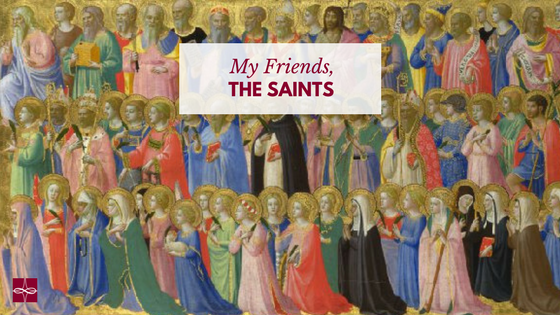





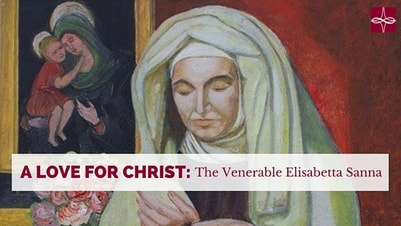

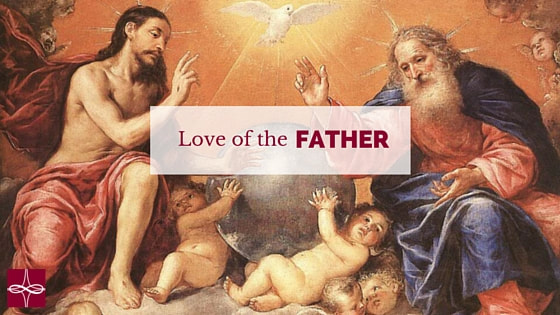

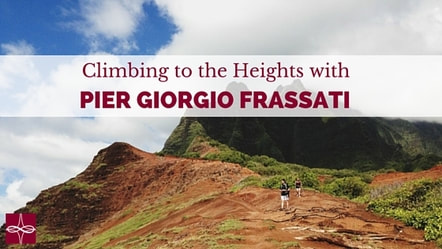
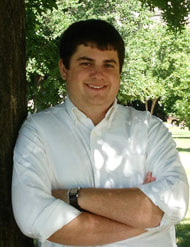



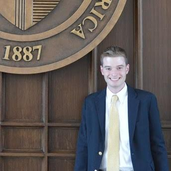
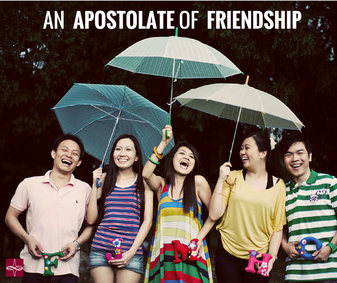



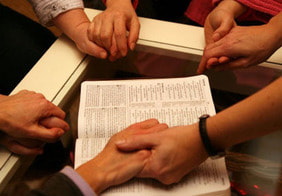


 RSS Feed
RSS Feed